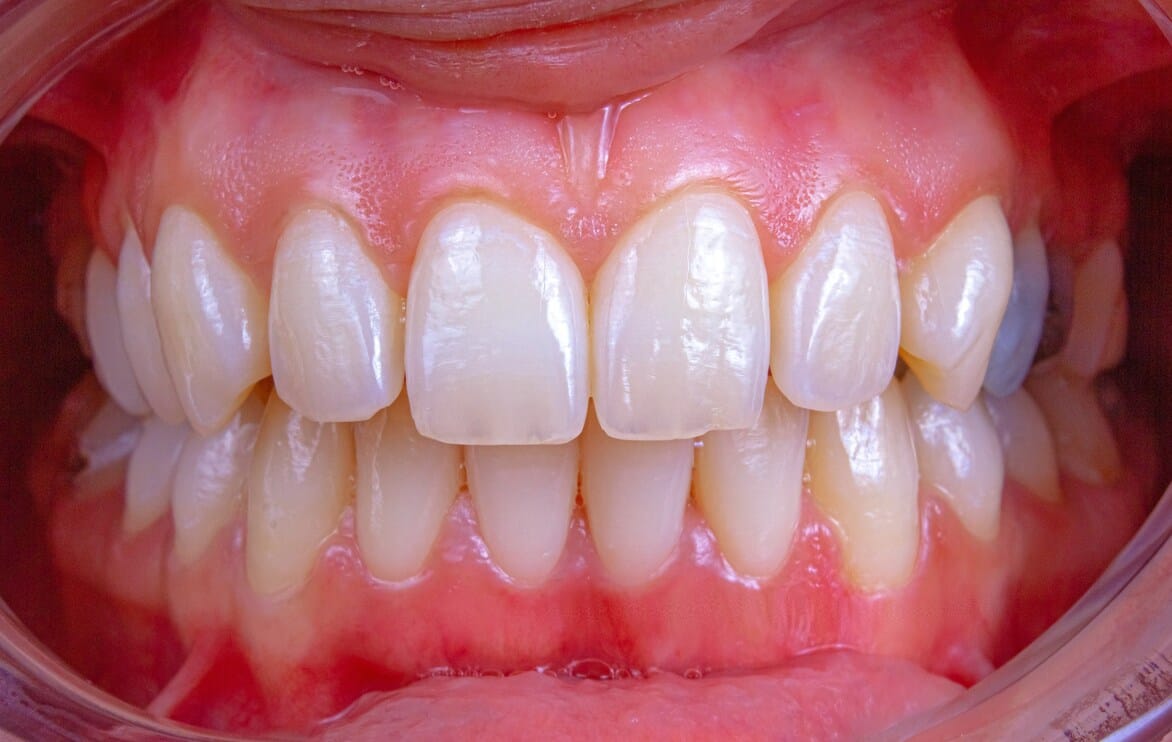Bleeding Gums – Are They Really That Bad?
Many people notice a little blood when brushing or flossing and think nothing of it. You might assume you’ve pressed too hard with your toothbrush, or that it’s something that “just happens.” Healthy gums should not bleed. Even the smallest amount of blood is your body’s way of telling you that something isn’t quite right – and it shouldn’t be ignored.

Why Do Gums Bleed?
The most common culprit is plaque build-up along the gumline. Plaque is a sticky film of bacteria that irritates the gums, making them red, swollen and prone to bleeding. At this stage, the condition is known as gingivitis. It’s extremely common, but importantly, it is also reversible with the right care.
If gingivitis is left untreated, it can progress into periodontitis, a more serious form of gum disease that damages the tissues and bone supporting your teeth. Over time, this can lead to gum recession, wobbly teeth and, in the worst cases, tooth loss.
Other possible causes of bleeding gums include:
- Brushing too aggressively or using a hard-bristled toothbrush
- Hormonal changes, such as during pregnancy
- Vitamin deficiencies (particularly vitamins C and K)
- Medications like blood thinners (such as warfarin and aspirin)
- Health conditions, including diabetes.
Why You Should Pay Attention to Bleeding Gums
It’s easy to dismiss bleeding gums as a minor nuisance, but the effects can reach well beyond your mouth. Gum disease has been linked with:
- Heart disease and stroke – bacteria and inflammation may affect blood vessels
- Diabetes – gum disease can make blood sugar harder to control, and vice versa
- Respiratory health – oral bacteria can be inhaled into the lungs, increasing the risk of infection.
So bleeding gums aren’t just a matter of oral health – they can be a warning sign for your overall wellbeing.
Taking Action at Home
The good news is that early gum problems can often be reversed by stepping up your home care. Brushing gently twice a day with fluoride toothpaste is essential, and using a soft-bristled toothbrush helps protect delicate gum tissue.
We always recommend an electric toothbrush where possible, as it’s easier to manage the brushing time and toothbrush pressure. Cleaning between the teeth with floss or interdental brushes is just as important, as it removes plaque from areas a toothbrush can’t reach.
If you notice bleeding, don’t be tempted to avoid brushing in that area – it’s actually a sign the gums need more thorough, but gentle, cleaning. A balanced diet rich in vitamins and minerals will also support gum health, while cutting down on sugar reduces the fuel bacteria thrive on. Staying hydrated helps to keep your mouth clean and fresh, and if you smoke, giving up can dramatically lower your risk of gum disease.
When to See a Dentist for Bleeding Gums
If you’ve improved your cleaning routine but bleeding continues for more than a week, it’s time to make an appointment. You should also see your dentist if you notice:
- Bad breath that doesn’t go away
- Gums pulling back from your teeth
- Swelling or tenderness
- Teeth that feel loose.
At Holland Park Dental Centre, we can examine your gums carefully, remove stubborn plaque and tartar with a professional cleaning, and give you personalised advice to help you get back on track. For more advanced cases, our specialist periodontist can provide targeted treatment to stop gum disease in its tracks and protect your teeth for the long term.
The Bottom Line
Bleeding gums are never “just normal.” They’re an early warning sign of gum disease – and catching them early makes treatment simpler and more effective. With the right care at home, regular check-ups and professional support when needed, bleeding gums can be reversed and your smile protected.
So if you’ve noticed bleeding when brushing or flossing, don’t ignore it. Book an appointment with Holland Park Dental Centre today and let us help protect your gums, your teeth, and your overall health.

Sorry, the comment form is closed at this time.